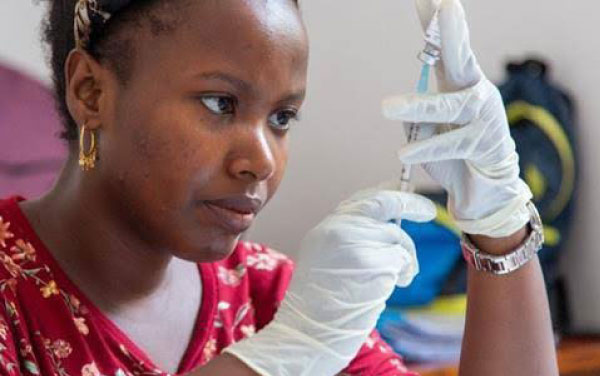In this report, FUNMILAYO AREMU-OLAYEMI examines the cost of treating malaria in Nigeria amid the rise in cost of living in the country.
Malaria remains one of the persistent health challenges affecting all regions of Nigeria and despite many efforts to combat it, the nation still has the highest burden of Malaria according to the World Health Organisation (WHO).
According to recent data from the National Malaria Elimination Program (NMEP) and the WHO, Nigeria accounts for a significant proportion of global malaria cases and deaths. The prevalence varies by region, with the northern and central parts of the country experiencing higher transmission rates.
Adding to the challenge of this high malaria burden is the rising cost of drug prices and healthcare in Nigeria. The current high cost of living in Nigeria affects many facets of everyday life, and for many, the cost of healthcare, especially treatment for malaria, becomes a pressing concern.
The departure of a major pharmaceutical company from the country raises the possibility of a change in the pharmaceutical industry, which could have an impact on the cost and availability of necessary drugs, particularly those that are critical for treating malaria. There are concerns that drug prices may continue to rise as the market adjusts to the loss of this big player, making it harder for people to find effective and affordable healthcare solutions.
Sunday Tribune investigated the cost of treating malaria in Nigeria and discovered that the direct costs associated with malaria treatment including medical consultations, diagnostic tests and antimalarial medications vary depending on factors like the severity of the malaria infection, the healthcare provider, health insurance and government policies and interventions.
Cost of antimalarial drugs
According to WHO, Artemisinin-based combination therapies (ACTs) are the most effective antimalarial medicines available today and the mainstay of recommended treatment for Plasmodium falciparum malaria, the deadliest malaria parasite globally.
Sunday Tribune examined the cost of available antimalarial drugs in the Nigerian market. It was revealed that the prices of the drugs range from N1,000 to N50,000.
Findings by Sunday Tribune show that Coartem (Artemether/Lumefantrine) 80mg/480mg Tabs x6 costs N3,750; Giviter N725; Lonart DS 80mg/480mg Tabs x6 costs N3,000; Amatem Forte (Artemether/Lumefantrine) 80mg/480mg Softgel costs N2,200; Amalar (used for prevention of malaria) costs N450; P-Alaxin (Dihydroartemisinin/Piperaquine) Tabs x12 costs N1,150; Camosunate for adult costs N1,200 while for children costs N1,000; Artequick (Artemisinin/Piperaquine) Tabs x4 costs N1,600; E mal injection costs N1,100; Artequin Adult (Artesunate/Mefloquine) 600mg/750mg Tabs x6 costs N15,750 and Malanil (Artovaquone/Proguanil) 250mg/100mg Tabs x12 costs N50,000.
Cost of diagnostic test
The cost of diagnostic tests also varies from one healthcare provider to another and one location to another. In Oyomesi Specialist Hospital, Orogun, Ibadan, a malaria test costs N2,000, while at Purelife Pharmacy in Lagos, a malaria parasite test costs N3,000.
Malaria test kits also vary in price, ranging from N3,000 to N20,000. Fyodor Urine Malaria test kit (x5) costs N3,000, One Step Malaria Antigen P.f(HRP-II) Rapid test (x25) cost N15,000 and First Response One Step Malaria Antigen P.f(HRP-II) Rapid Test (x25) cost N20,000.
Cost of treatment in PHCs, govt hospitals
Sunday Tribune also visited some community healthcare centres to find out how much it costs to treat malaria.
At Odo Ona Elewe Primary Health Clinic, Sunday Tribune spoke with a staff member who preferred to be anonymous. She revealed that antimalarial drugs are free for everyone who visits the clinic.
“Treatment is free for anyone registered with the Oyo State Health Insurance Agency (OYSHIA) or Basic Health. We were given some drugs last year and we have exhausted them. If anyone comes now and needs any of the ones that we do not have, they will have to buy. Antimalarial tablets are free for everybody,” the health worker said.
At the Federal Medical Centre, Jabi, Abuja, Sunday Tribune discovered that the cost of treating malaria for a registered patient is N3,000 while an unregistered patient has to pay N5,000.
While many Nigerians groan about the high cost of treating malaria, it appears that they are not the only ones grappling with this challenge. The government which provides free treatment for malaria in public health centres are also feeling the strain of the rising cost of drugs.
This much was revealed by the officer in charge of staff clinics and Director of Nursing Service in Owerri, Imo State, Mrs Patricia Awomozo, disclosed that the cost of treating malaria in the primary health centres has skyrocketed, adding that the cost of treating malaria increases daily because there is always a need to give anti-malaria drugs, depending on the severity of the case.
She said: “There was a Roll Back Malaria programme where drugs were supplied to people free of charge, but since 2016 till date the programme is no more. The cheapest malaria drug in the market is Amoxile syrup which cannot be bought below N1,300. An antibiotic drug used for treating malaria and common cold, Coatem tablet cannot be purchased below N1,000, while a sachet of Paracetamol costs N300.”
Mrs Awomozo explained further that the total cost of treating malaria in a child, including laboratory test, cost of drugs, is between N5,000 and N6,500, while an adult would spend about N10,000.
Also speaking with Sunday Tribune, Mr Ebere Nwalue, a stakeholder in the state lamented the high cost of treating malaria. He said, “People are being subjected to another round of hardship and something needs to be done by the federal government to remedy the situation so that people will be relieved of the burden.”
Additional reporting by John Kennedy Uzoma
READ ALSO FROM NIGERIAN TRIBUNE
